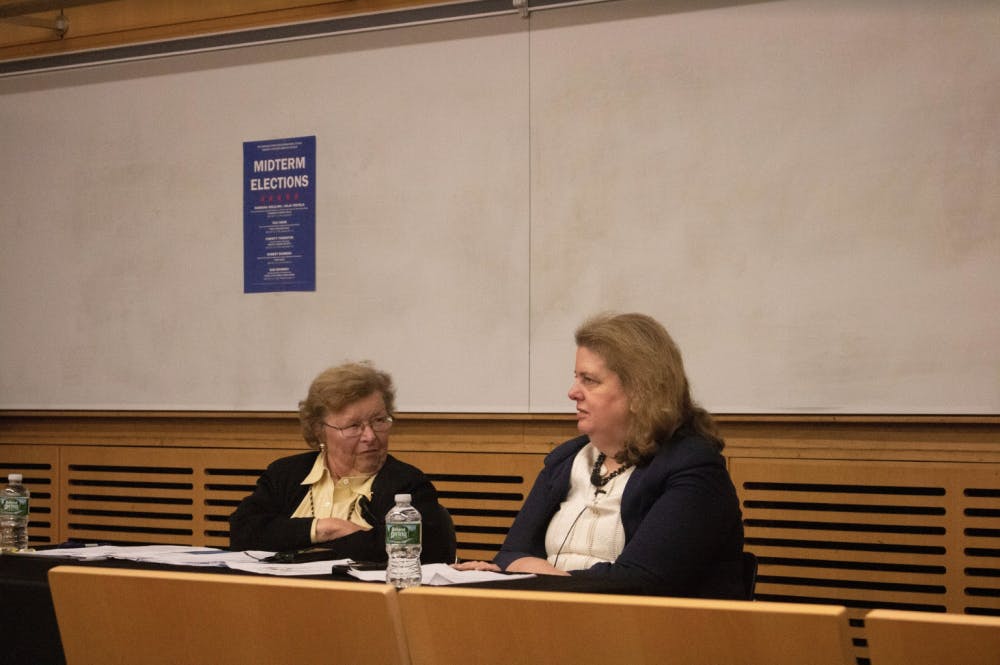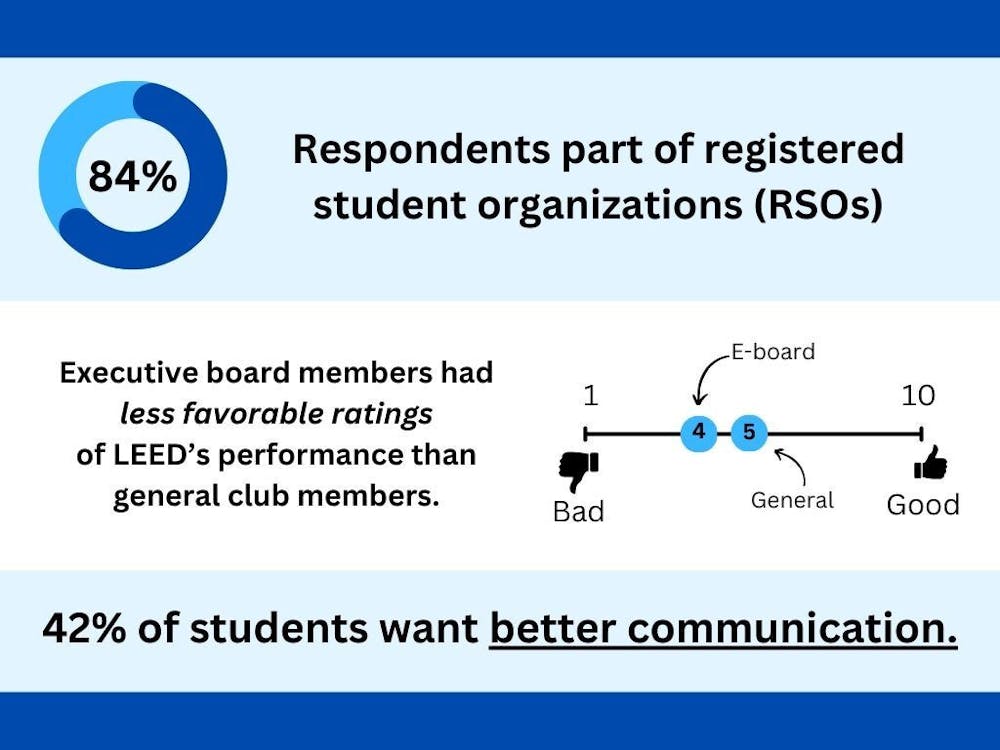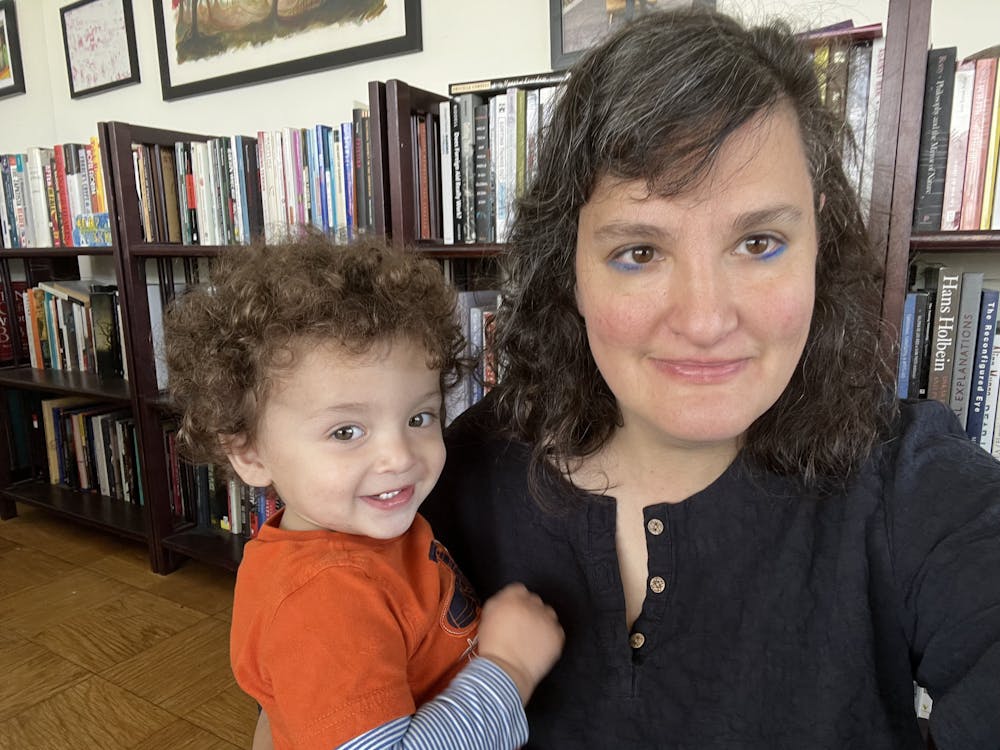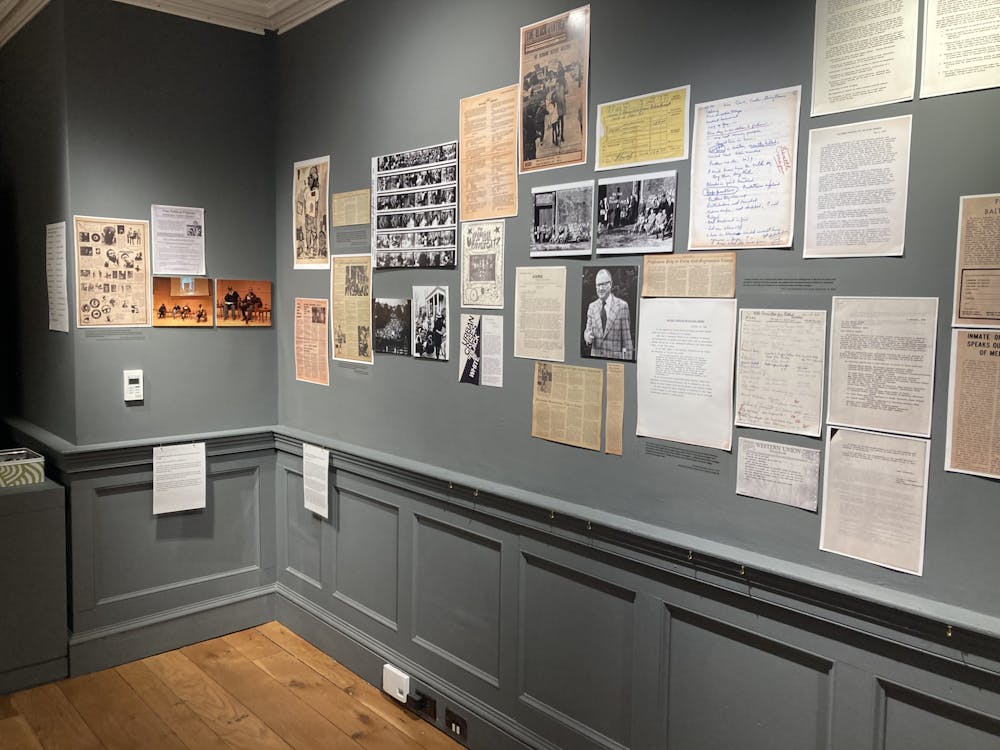Five-term Maryland Senator Barbara Mikulski and Senior Adviser to the Provost on International Affairs Julia Frifield gave the first talk in a Speaker Series on Wednesday on the upcoming midterm elections.
The series, hosted by the Aronson Center on International Studies, will feature discussions on Iran and nuclear policy; Mexico and border security; and trade wars, President Trump and the liberal world order.
Mikulski and Frifield fielded questions from senior Elizabeth Duncan, co-director of the student-run International Studies Leadership Council (ISLC), and junior Muhammad Umer Janjua, a member of the ISLC, before answering audience questions.
Janjua explained the value of Mikulski’s take on the upcoming midterm elections, as both a former congressperson and as a Hopkins professor.
“She is one of the most senior senators in the history of the United States Senate. She’s been in that position while the U.S. was going through some critical moments in its history, and within the senate, she’s had positions of very pivotal importance,” Janjua said.
Mikulski began the talk by explaining that she went into politics following the assassination of Martin Luther King Jr. and Robert F. Kennedy. In her first government job, she worked to save homes of residents of downtown Baltimore.
“I never thought I’d go into politics. My background is that of a social worker. I started as a foster care worker then a child abuse worker,” she said. “Ben Jealous, who is running for governor of Maryland, his grandmother was my mentor.”
Mikulski emphasized the importance of voting in the midterm elections throughout the talk. The midterms, she said, can be seen as a poll of the United States’ satisfaction with the executive branch.
“Midterm elections are the closest we can get to a referendum on the administration. And it’s really a parliamentary election, because the president’s not up, but the president’s agenda, the president’s cabinet, the president’s conduct of both domestic and foreign affairs, are the issues of the day,” Mikulski said.
Administrative Director for the Office of International Centers & Programs Sydney Van Morgan explained that the speaker series on the midterm elections was created this year in response to the rapidly evolving political landscape.
According to Van Morgan, there is more at stake in the upcoming 2018 midterms than there has been in the past, especially in light of the Mueller investigation and rising accusations against the Trump administration.
“Midterm elections normally don’t get a lot of attention, but as you guys know, these are not normal times and this is not a normal election,” Van Morgan said.
Both Mikulski and Frifield spoke about the primaries as a potential obstacle in regaining America’s foreign legitimacy. Primaries, they explained, drive people toward the political extreme, leaving moderates with little room on their party ballots.
Frifield explained the difficulties of governing in an age of political extremism.
“You see in some of the newer members that there’s no sense of bipartisanship,” Frifield said. “In foreign policy you can’t achieve anything without bipartisanship.”
Mikuski and Frifield answered a question from the audience regarding the effect of social media on political campaigns. Because anyone can create a YouTube video or post on Facebook at no cost, they said, it is easier to cheaply start a political campaign today.
“Social media is just a tremendous tool, and it’s been a tremendous tool for organizing. When I think about my own grassroots days of organizing, we were organizing without cellphones,” Mikulski said. “I’m for social media. I think it’s great, and I like the way upstarts can run campaigns. Back in my day you had to raise money for 30-second TV ads.”
Mikulski spoke about the differences between the upcoming midterms and those that she had gone through in the past. In particular, she emphasized that different types of people are running for office.
“A blue wave is coming, and the blue wave is different than any other wave we’ve had. First of all, it’s tending to wear lipstick and high heels, but it’s also wearing camo. There are a lot of veterans that are running in this election,” Mikulski said, “Their first loyalty is not to a political party but to the United States of America.”
She added that the upcoming generation of politicians would improve the political landscape.
“I would hope my party wins, but whatever it is, it’s going to be a new wave and new faces and new energy and I think the commitment really to carry us through the rest of this century. We really need it,” Mikulski said.
















Please note All comments are eligible for publication in The News-Letter.